Millionaire Mondays with Patrick
Patrick’s self-professed level of financial literacy might feel familiar for a lot of millennials: if there’s one thing I know for sure, it’s that there’s a lot I don’t know. Since moving to Canada two years ago, he’s shifted his focus to developing long term strategies that’ll set him up for success down the line. He also occasionally dabbles in Dogecoin, which I love to hear about but am afraid to try.
This interview is part of a lightly chaotic series where Megan, a writer, discusses millennial financial goals with her peers and their strategies to get there. Spoiler: we all want to be millionaires.
In this conversation: amorphous goals, developing transferable financial strategies, and gettin’ burned by bitcoin just enough to learn something (without being bitter about it).
——————
Megan: Hi Patrick! Thanks for talking with me today. Can you introduce yourself for our ~*~readers*~*?
Patrick: Hi, nice to meet you! Sure thing. I’m Patrick, I’m a product designer at Mogo. But I’ve only been here about a month—before that I was with Vancity. I’ve only been in Vancouver for about two years, I’m originally from England.
M: Patrick, what’s a product designer?
P: It’s my job to design the interface for the mobile app experience that our members get.
But right now I’m not working on the Mogo app, exactly. I’m working on Mogo’s new venture, which will bring commission free trading to our members.
M: How did you wind up in this role? Did you study product design?
P: My education is actually completely different. I studied maths at the undergraduate level in England, and then did a master’s degree in behavioural economics and experimental finance.
I think after all of those years of rigorous study, I wanted to do something more creative.
M: Understandable! Okay this next question is a bit tough: can you define your financial literacy in three words?
P: Hmm. I’d say… “Should be better.”
M: That is very funny! I’d like to throw back to Pauline’s Millionaire Monday interview—her three words are “better than before.” Another upcoming interviewee used “always getting better.” I’m seeing a trend.
Would you consider yourself financially literate now?
P: Sort of. I know that I should be, because I’ve literally been educated in it. I paid a lot of money to be educated in it! And I’ve worked for financial companies for basically my entire career—with an accounting firm in the UK, a credit union in Vancouver, and now Mogo.
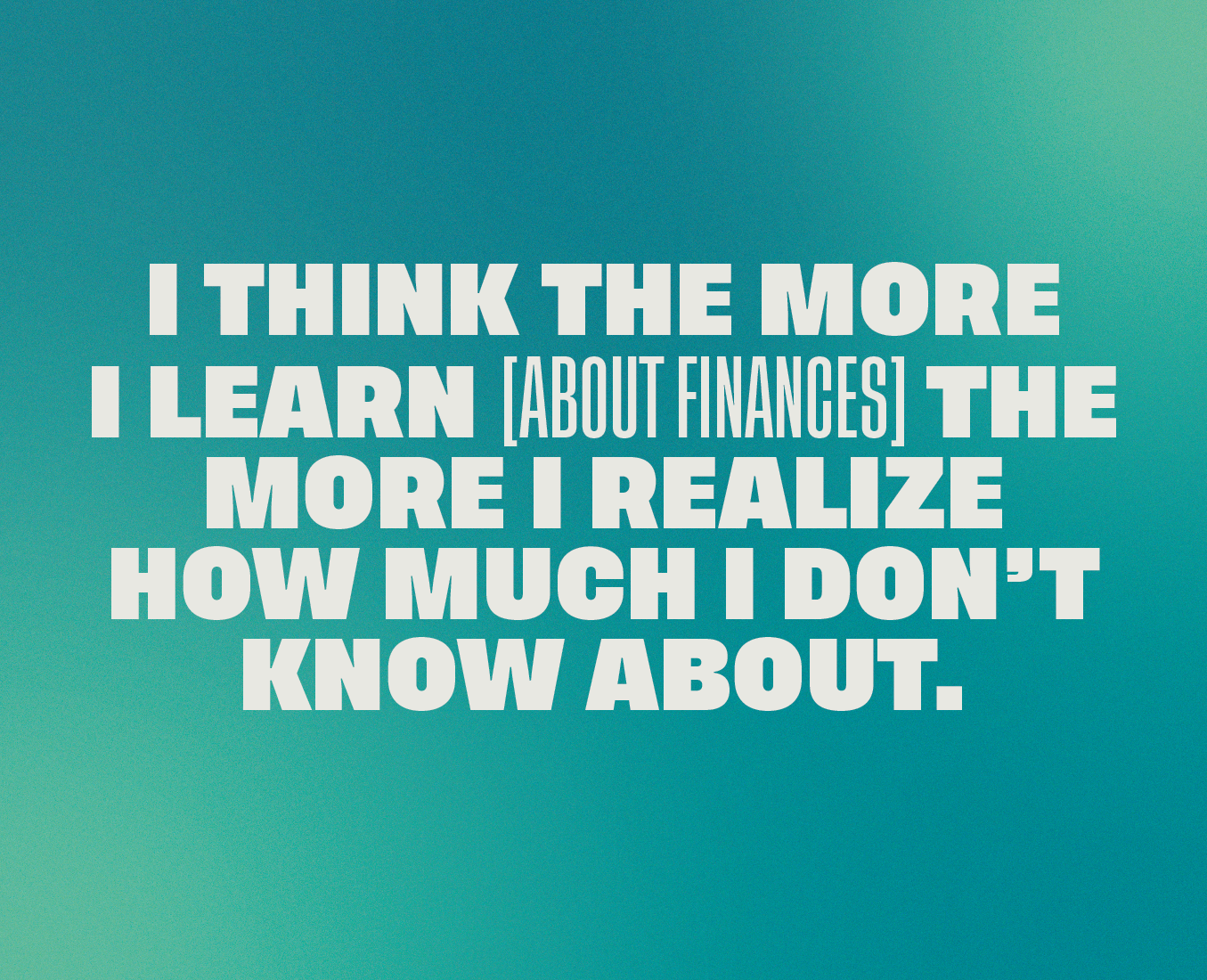
M: I really relate to this. Why do you think this stuff happens? How do we wind up feeling this way?
P: There’s just so much information out there. Especially given how connected everything is; we’re on social media, we’re constantly exposed to the news. You’re always seeing stuff going on.
It seems like people are always making these big financial decisions, you know, investing and things like that. And often it seems like those people do quite well. But I’ve never felt I had the time to sit down and think about those things, and to actually learn what to do with my money.
M: Do you have any goals or strategies to get you where you would prefer to be, literacy wise?
P: I read financial books and articles pretty regularly when I come across something interesting. And through that I feel like I have a base level of literacy. But now, it’s just like what kind of strategies and topics do I want to learn more about? I think that's where I feel like there’s too much choice.
I feel like I should be better at saving and stuff. Although I was talking with another colleague a few weeks ago and she mentioned the 50/30/20 Budget that Mogo is a big proponent of. So I’ve been giving that a go.
M: How are you finding the 50/30/20 Budget? Is it working for you?
P: I’ve only been working with it for about a month, but there are already a few things that have stuck with me.
I’ve calculated the dollar values of each part of the ratio, and that’s helped give me some perspective. I know now I can cover my “needs” with about 50%, like the budget suggests.
And with that I realized that I should really be saving more. Like I probably don’t need to spend this $20 on UberEats. I can probably just make something myself.
So it’s made those decisions a lot easier. Because now, at the end of the month, I see the financial benefit of all of those $20 expenditures stacking up. So that has certainly created some perspective on how much I could actually be saving right now.
M: Do you have a certain figure you’re hoping to reach with your savings? A lot of folks our age are grappling with saving for a down payment and stuff like that.
P: Honestly I don’t really have a specific goal yet. Admittedly, for example, I’m not really thinking about retirement yet—though I know I should be. I’m not really thinking about buying a home yet.
I think this is partially because I don’t know how long I want to stay in Vancouver.
M: Of course! How are you managing that uncertainty?
P: It’s a bit tough. I have Permanent Residency here in Canada, but I know there are a lot of other opportunities that I want to explore.
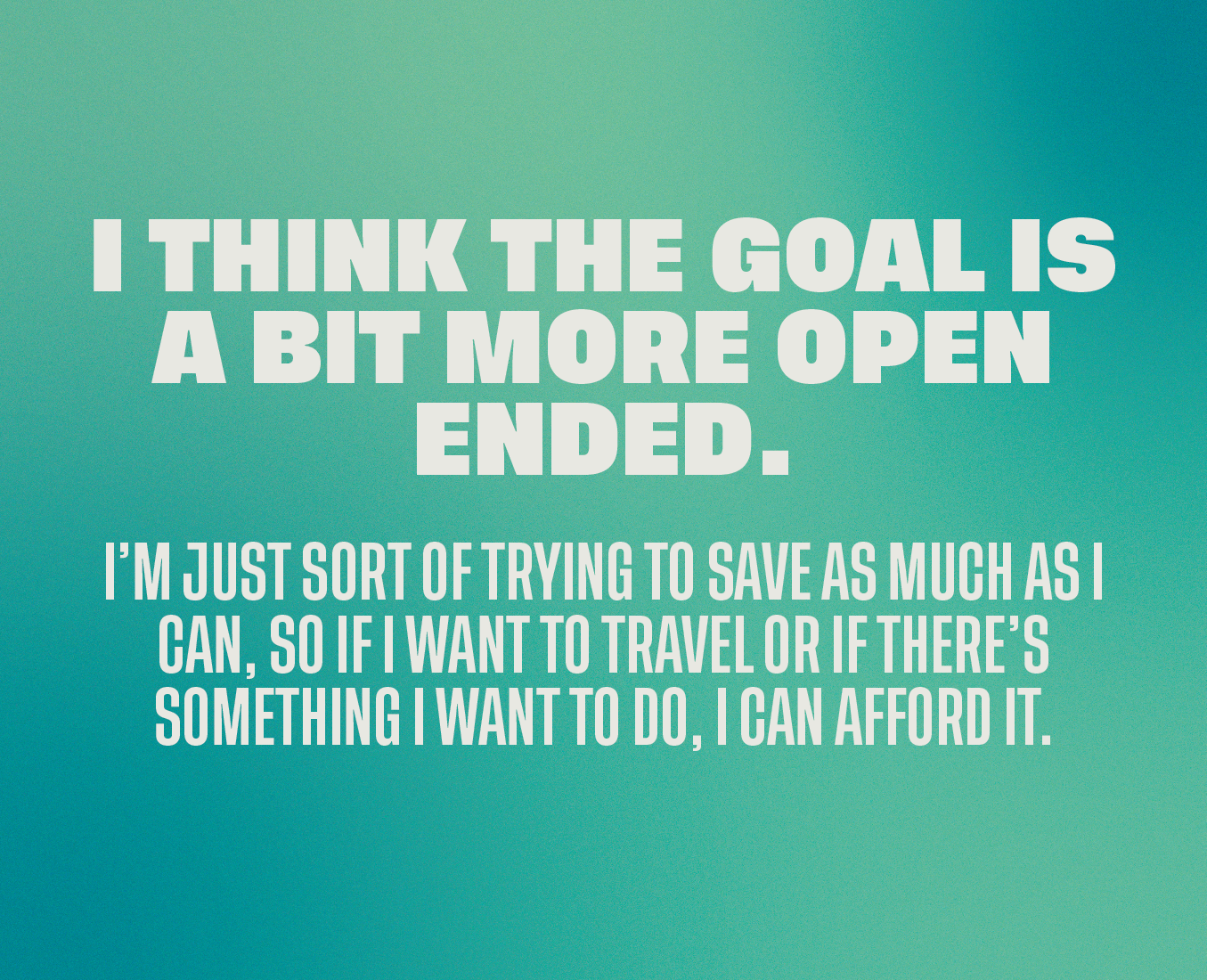
M: Do you have any debt you’re managing?
P: I have student loans, yeah. But they’re all based in the UK, which I think is quite different from Canada. I’m slowly paying them down with a bit off every paycheque, but eventually I think a portion of them will be forgiven. It’s a lot more relaxed, so that doesn’t really weigh on me.
I also would use my credit card regularly, though that has changed since I got my MogoCard.
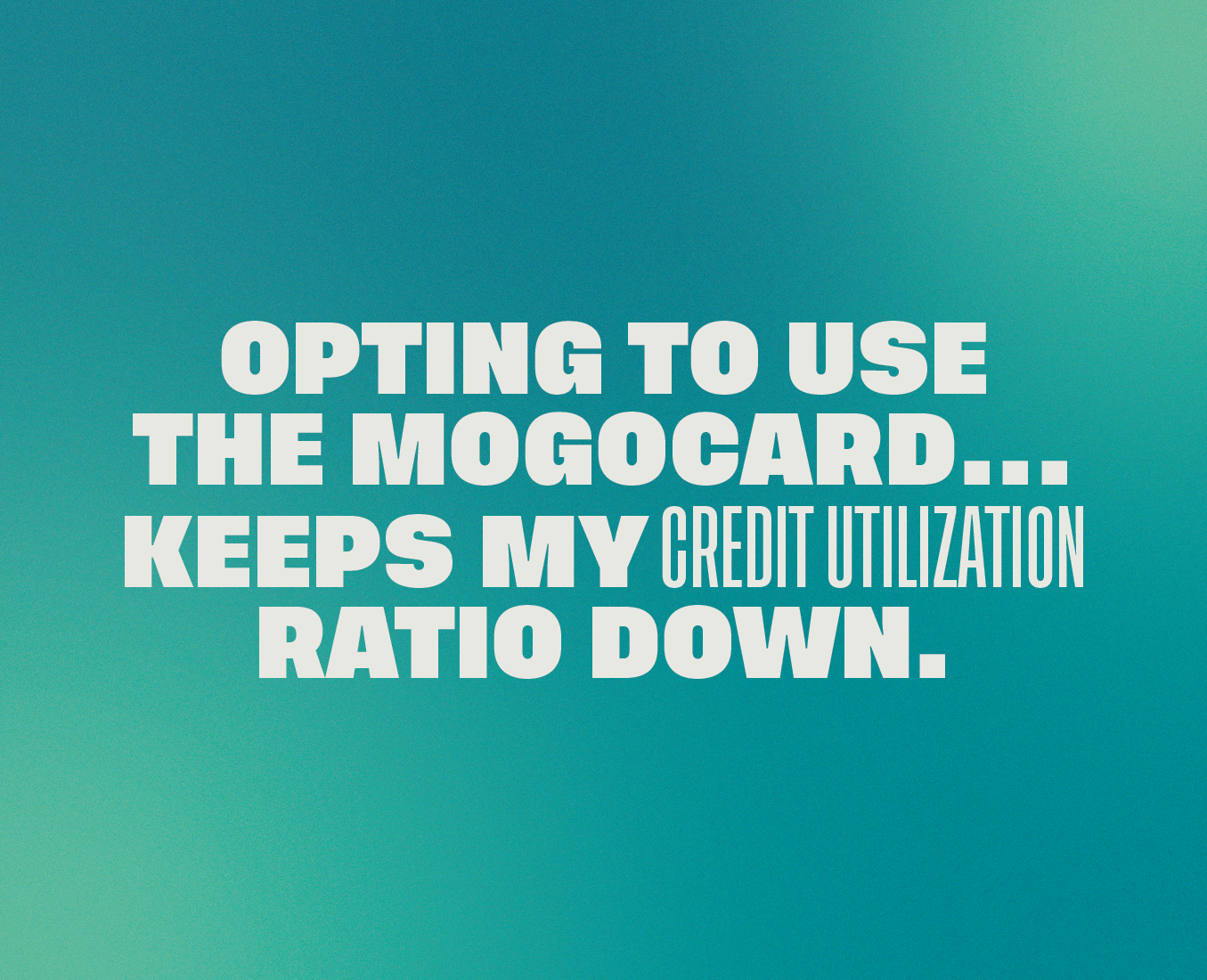
The notifications you get are helpful too. Sometimes I check my phone and see like, 5 or 6 spending notifications from the last hour and I have to do a little reckoning.
So it helps keep my spending under control; I can’t be ignorant about it. Which I know is ultimately a good thing.
M: You mentioned that you don’t really have a specific goal in mind, and I think that’s really interesting given that you’re English and living in Canada. Anecdotally speaking, I think more and more millennials are finding themselves in these situations where it’s harder to plan for the future.
We’re more mobile, it’s much easier to live and work abroad in some cases, for example; there’s also a degree of economic uncertainty, at least in Canada, that can make everything feel a bit up in the air. Does that resonate at all?
P: Definitely. I’m very aware that this is a privilege of mine, to have the freedom to live abroad. I’m sure it’s very different for lots of other folks our age.
I took the opportunity to move out here and am grateful to have landed on my feet. But yeah, now it is really strange.
I’ve got a bit of money in the UK, and a bit here in Canada, for example. Do I bring everything over to Canada? Am I going to stay here?
It should be invested and growing in a long term plan. But I didn’t really think about it before I moved here, and now it just sits in my bank account. It’s not really doing anything. And it’s tough because between Canada and the UK, nothing really syncs.
M: I absolutely get that. Getting my own finances set up as a Canadian living in England has been a very frustrating challenge.
You have PR, which means you must like Canada a little bit, so: do you have any strategies for building your wealth in the medium term, then?
P:
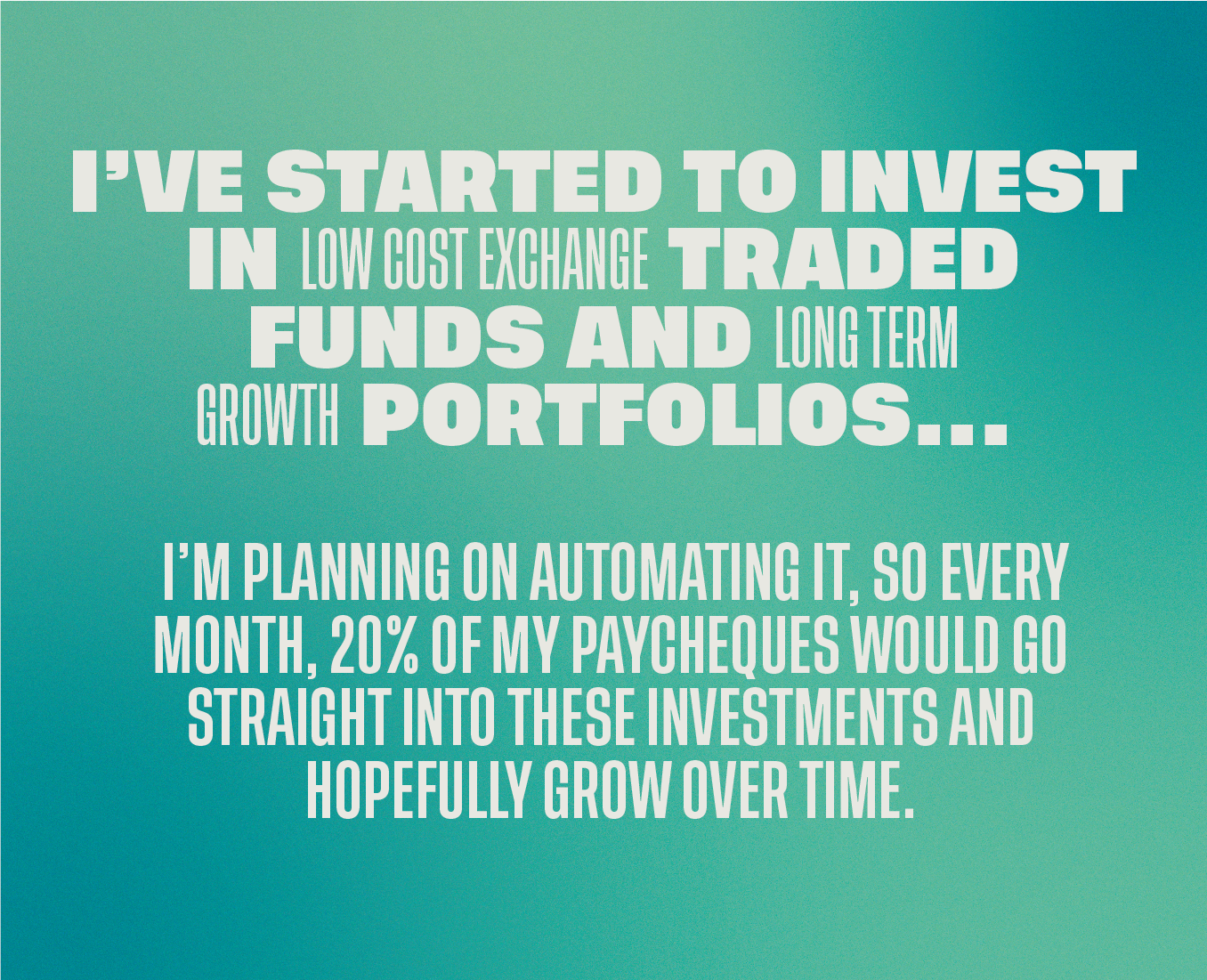
I don’t really have any big expenses, like I don’t own a car or anything. And I don’t mind renting right now.
Back in England, my sister and I are purchasing a house as an investment property, but purchasing in the North East is very different from buying in Vancouver. Housing prices are a fraction of those here. So I’m just splitting the down payment with her, really.
M: It sounds like more passive investment strategies appeal to you over more active approaches.
P: I think that’s accurate to say. I have tried to invest myself, picking stocks. And it works. But I’ve found it’s just not as good as ETFs.
And I did get burned by crypto, back in England. A few mates and I were getting paid for a few jobs in crypto. We got in when crypto was high, but when it fell, we sold because we just couldn’t stand to think about it anymore.
Dollarwise, at that point, we weren’t dealing in huge amounts. But in terms of what that would be now, well… Yeah. I regret that a bit. So I’m taking the long term approach. But that works for me, because I’m not looking to make a ton of cash in the next six months.
M: Are you totally anti-bitcoin now then?
P: Well, I do still hold some.
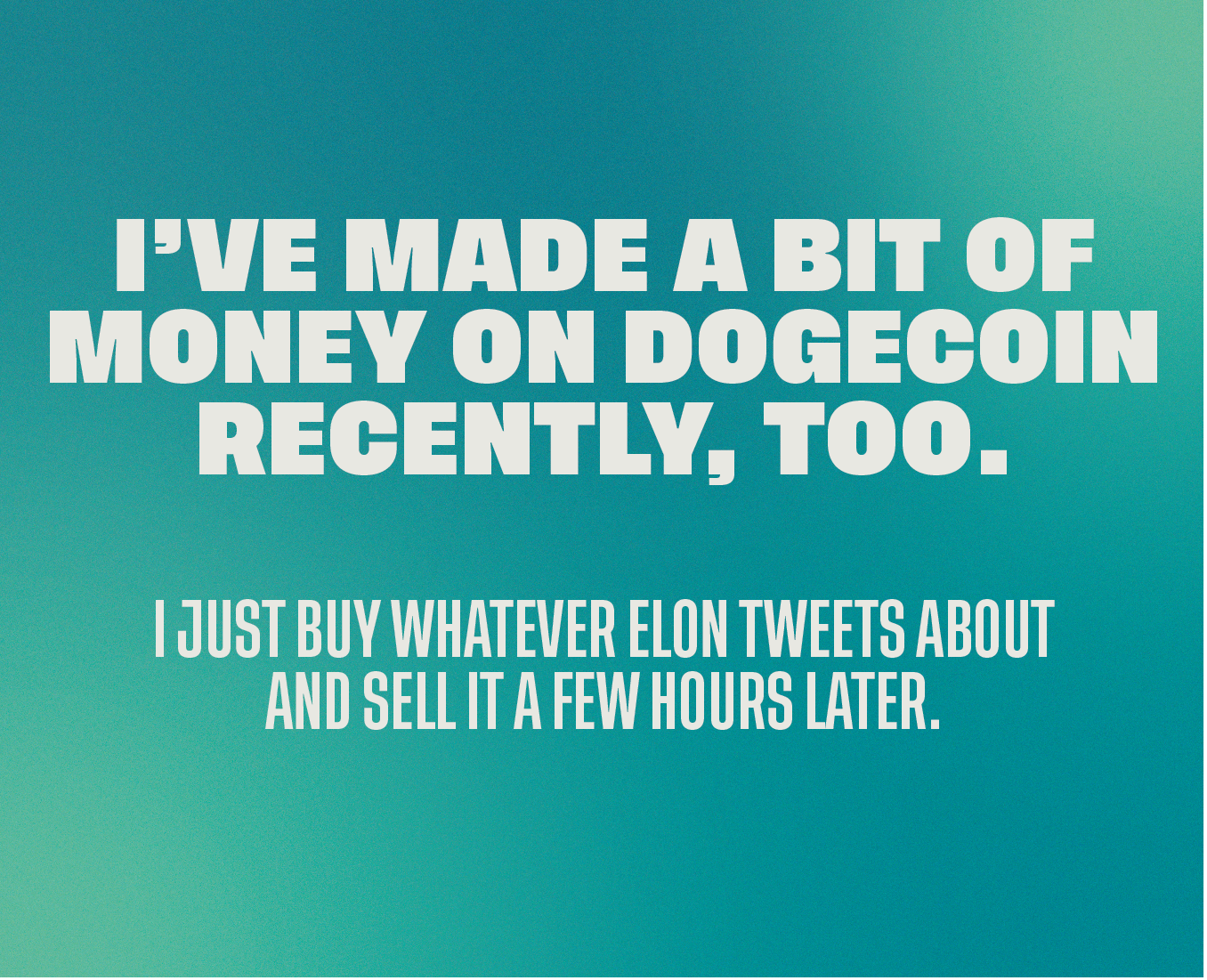
M: That is extremely funny. But here I also want to pre-empt our lawyers by saying that is not a strategy we could ever recommend to readers! So don’t do anything dumb, you guys!!
P: That’s fair.
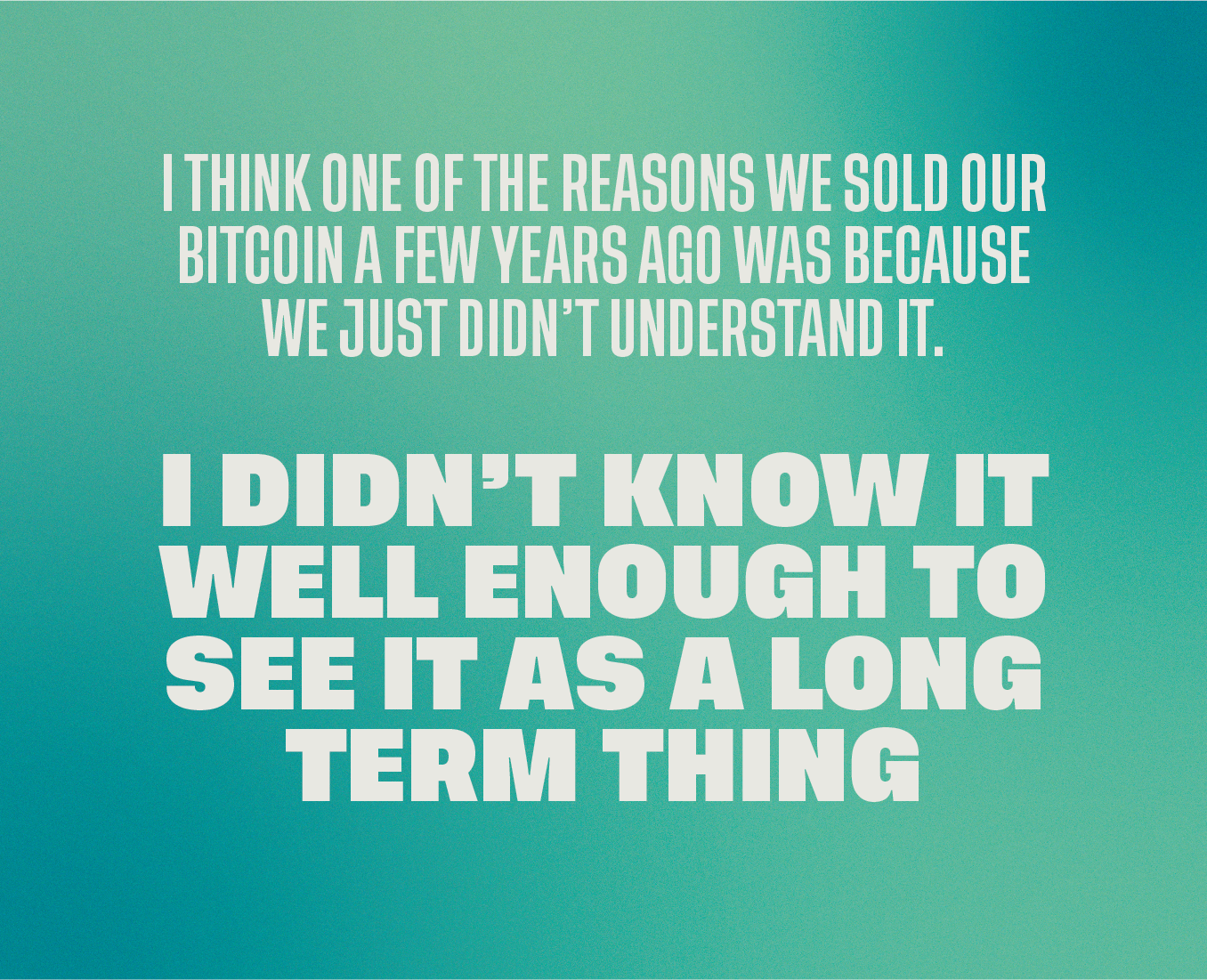
But this is the thing, I guess. There’s a lot I don’t know. I’m just trying to chip away at it.
M: Ditto. You’re definitely not alone on that one. Well, it’s time for the million dollar question, literally: do you know what number you’d like to retire with?
P: Based on the 50/30/20 Budget, where I’d save 20% of my monthly net income, I’m looking at retiring with $2.9 million if I plan conservatively. If I’m a bit optimistic, I think I could wind up with as much as $6.9 million in the bank.
M: Does that surprise you? That’s a ton of money, and retiring with that level of comfort is well within reach.
P: It’s really weird to see that number, yeah. Honestly, I hadn’t thought too hard about it before, but seeing that now, I’m surprised that it would be that much even with what I’m saving now.
I think it’s possible this number could feel a lot smaller in practice, depending on inflation and the cost of living of where I want to retire. But if anything, that makes me want to start saving more now, so I know I’ll be comfortable. It’s wild how consistently saving as little as 20% can set you up like that.
M: Patrick, I’m jealous. Don’t forget about me when you’re an extremely wealthy old man. Thank you for sharing with us today!
——————
At Mogo, we rattle on about the power of consistency, but only because it really works. Incremental saving over the course of many years is a generally manageable strategy for retirement savings, and your cash can really pile up. Remember, when it comes to retirement, reaching your financial goals is a marathon, not a sprint.
Read about the 50/30/20 Rule here and the MogoCard here if you’re curious. Now get saving! Hang in there, y’all.
This blog is provided for informational purposes only, isn’t intended as investment advice, and isn’t meant to suggest a particular investment or strategy is suitable for any particular investor. If you’re unsure about an investment, you may wish to obtain investment advice from a qualified professional.
MogoCard means the Mogo Visa* Platinum Prepaid Card.
*Trademark of Visa International Service Association and used under licence by Peoples Trust Company. Mogo Visa Platinum Prepaid Card is issued by Peoples Trust Company pursuant to licence by Visa Int. and is subject to Terms and Conditions, visit mogo.ca for full details. Your MogoCard balance is not insured by the Canada Deposit Insurance Corporation (CDIC).